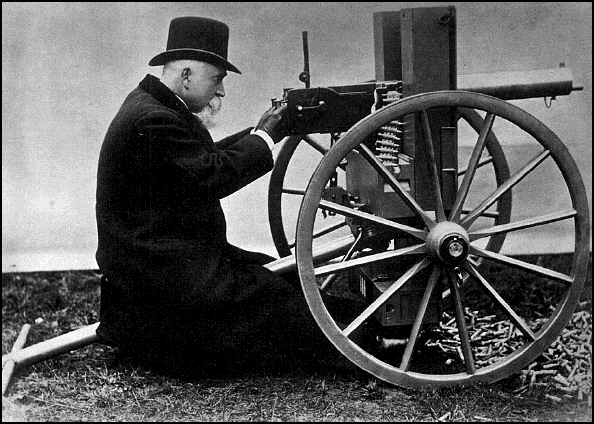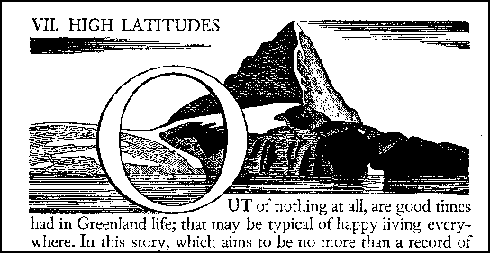Twenty-Two
Stars
In our General Index,
we hand out stars to books
that we feel are "of especial merit."These stars are rare.
In any one year we will give a
*
to no more than 10 percent of the books we review. We list here the twenty-two stars from the last year or so.
They appear in the order of the publication of their review, beginning with our 100th Issue.

There are times when Kwong has the ability to make us merry --- he comes across as a very merry person --- as well as touch the heart, touch it deeply.
One night he was returning to San Francisco with his family and they arrived at a street corner where a car had just overturned, virtually split in two. One of the two passengers had been thrown out, and was lying in the street, on his back, lying in a pool of blood.Kwong ran to his side and knelt down. He tells us that the young man's eyes were open and bright and he was looking up at the skies. He looked at Kwong and said, "The stars are bright tonight." Kwong responded, "Yes --- they are very bright."
This is good stuff. The key message he has for us is that he is not teaching us something we don't know already. It's all there in our minds, just waiting for us to access it. When we are ready.
John Weston knows how to grab one's attention from the very first page when we find ourselves eating barbecued mountain lion, to the last, where he tells of a simple pack rat's nest. Through carbon-14 dating we learn that it may have existed for 10,000 years. The whole book is a diverting accounting of life of a time when one could live off the land. The picture that emerges of his mother Elione and her brood is as gentle as Laurie Lee's magic saga of growing up in rural England, The Edge of Day.
Daniel Anderson, Editor
(Swallow/Ohio).
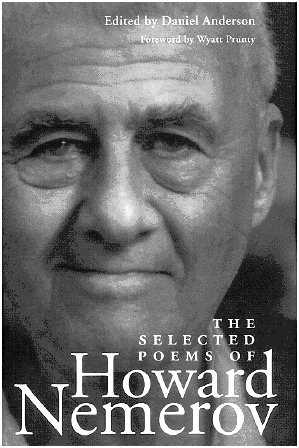
It's the first time since college that I took a book of poetry to bed with me: that's how chummy we got, me and this Nemerov. I read him through, first to last; slept, woke up, read it back to first, marking the pages, wondering "Where has he been all my life?"
For I tell you, he's good, in all the ways that a poet should be good. He can be merry, he and his buddies on a hungover outing in Big Branch ("all those aching heads and ageing hearts"). He can be pensive, the goldfish bowl, "Waving disheveled rags of elegant fin." He can write a three pager about going to the town dump: "flies...a dynamo/composed, by thousands, of our ancient black/Retainers..."
He can set up a new vision of the aged ("Near the Old People's Home") where
Some have the habit of getting hit by cars Three times a year...
(It's that exact "three times," that "habit" --- that's what delights.) The mud turtle: he sees it, he weaves words about it, putting us there, seeing turtle, and seeing paradox, "The time he comes from doesn't count..."
The Curious Lives
Of Human Cadavers
Mary Roach
(Norton)
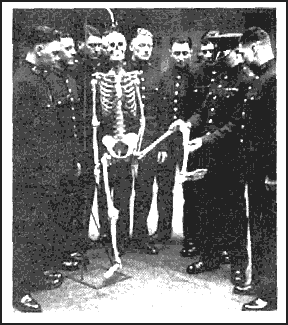
Roach is not only a joker, she's also an intrepid, sometimes demanding, reporter. She goes to a hospital where organ transplants are done, visits the harvesting room. Patient H has been brain-dead for a few weeks and the doctors have permission to take the livers, kidneys, and heart. The author has a peek inside the chest cavity just before the heart is pulled, and reports,
I've never seen one beating, I had no idea they moved so much. You put your hand on your heart and you picture something pulsing slightly but basically still, like a hand on a desktop tapping Morse code. The thing is going wild in there. It's a mixing-machine part, a stoat squirming in it's burrow, an alien life form that's just won a Pontiac on The Price Is Right. If you were looking for the home of the human body's animating spirit, I could imagine believing it to be here, for the simple reason that it is the human body's most animated organ.
Suzan-Lori Parks
(Fourth Estate)
What a pleasure it is to put oneself into the hands of a writer who, for a change, knows how to spin tales and hook words together. Ms. Parks weaves it all so fine, stories of the five or so major characters and the thirty or so minor characters, all brought together so deftly that there's never a moment where one isn't either goggle-eyed at the details and the dialogue, or agog with anticipation over what's to come next. These people --- most of them supremely poor Blacks living in segregated Texas, 1963 --- are droll and dry and so very feisty.
On her way to find Snipes, on the bus, Billy meets Myrna. Billy is pregnant, so she makes continual references to her "husband." But Myrna knows. It's uncanny the way the author sets up the dialogue to bring Myrna to life, with all the subtleties, words unspoken, the looks. The reader, for the first time, through Billy's eyes and words, begins to see the two of them (and the truth):
"I met my Dale at the rodeo," [Myrna] says. Her voice goes lower, more private. "It was love but not true love. You know what I'm talking about, dontcha?"
"Me and my husband, Clifton, we got true love," I says.
"Yr lucky," she says, "All me and Dale got is five kids."
"Five is luckier than none," I says...
"Five is luckier than six," Myrna says. There's a meaning to what she's saying but I don't catch it. I'm looking out the window staring hard at the land going by and trying not to look at her big face in the reflection. She's talking to the back of my head...
"You gonna tell Myrna yr name?"
"Depends on whatchu gonna use it for," I says and she throws her head back and hoots.
"Keep yr voice down," a man riding towards the front says.
"Keep yr shirt on, honey," Myrna calls back. We giggle together.
"Billy Beede," I says.
"Got a nice ring to it. BB. Like a gun. Fast." She glances at my belly. "I didn't mean nothing by that," she murmurs.
"I got a husband," I says.
"Course you do. Pretty gal like you. Course you got a husband."
Empire:The Rise and Demise of
The British World Order and
The Lessons for Global Power
Niall Ferguson
(Basic Books)
How in god's name one man can draw together all the loose ends of the 300 year history of the British Empire in 350 or so pages, and make any sense of it at all is beyond me --- but he does it, and he does it well, and if you have any affection for history that is fun and cogent and lively, this should be your baby. I'm already on page 229, and with luck, I'll stretch out my reading, three or four pages a night, so I can squeeze at least another few weeks out of it.
Part of the fun of it comes from the facts, dozens and dozens of contrary facts that the author delights in:
-
Those buccaneers of the Spanish Main were little more than common thieves --- dutifully commissioned by the kings and queens of England.
- The Seven Years War was "the nearest thing the eighteenth century had to a world war."
- The Pilgrims thanked God for the fact that 90% of the American Indians had died of disease before they arrived: "The Hand of God," said the Governor of Carolina, has been "eminently seen in thinning the Indians to make room for the English."
- Paul Revere didn't shout "The British are coming!" but "The regulars are out," (Americans were still British in 1775);
- The Declaration of Independence was signed on 2 July 1776 (Thomas Jefferson misdated a letter announcing the event).
- "In economic terms, the continental colonies remained of far less importance than those of the Caribbean," which may be one reason the war to hold on to them was not prosecuted more vigorously.
- The English criminals who got shipped off to Australia between 1787 and 1853 were mostly nabbed for petty offenses; thus "Australia literally started out as a nation of shoplifters."
- The Indian Mutiny of 1857 was no mutiny, but "a full-blown war." And rather than being over lard-coated cartridges, it was Indian's fear of English attempts to "Christianize India."
- Africa today "is a far more Christian continent than Europe ... and there are more Anglicans in Nigeria than England." Why? Because of "the development of effective quinine based prophylactics against malaria. That made being a missionary a far less suicidal vocation."
- John Newton, the author of the popular hymn, "Amazing Grace" was a prosperous slave trader.
Jane Juska
(Villard)
This sex business is just part of the story; in fact as I read on, I realized that Ms. Juska is using this let-me-tell-you-about-my letch-side as a come-on so that we can read about her not so boring life. There are years of fat (she wore muumuus for several decades), growing up a proper doctor's child in Ohio, living a hippy's life in Berkeley, mixing amphetamines and scotch for years to get her through the days (and nights). There is also a career of championship teaching --- grade school, high school, teaching teachers, and in some of the most affecting passages, teaching writing to prisoners at San Quentin.
There is no little lust here, talk about G-spots and getting felt up in public by some of her would-bes and as always, her absolute non-stop, unrepentant, wild-eyed adoration of men's asses: one thing she learned from her first (and last) husband was appreciation for asses. They used to watch live football games from the end zone and discuss at length the various attributes of the glutes of the various players.
But Juska is just no simple foozle of a lust-bunny. As she says in her ad, she's nuts about Trollope. In fact, one of her orgasms (she claims) occurred in the rare book room of the very hard-to-get-into Berg Collection in New York City, where she is able to hold in her hands the manuscript of Trollope's novel Miss MacKenzie. She was afraid all the while that she would wet it (with her lachrymal glands, I should hasten to say), "for it would not do, would not do at all, for tears to stain these pages."
Skin Deep:
Tattoos, the Disappearing West,
Very Bad Men, and My Deep
Love for them All Karol Griffin
(Harcourt)
Skin Deep is an autobiography, yes: but it is also a textbook --- a very funny textbook --- about those who go into the tattoo business, or who come in to get tattooed, and the art of tattooing itself. We get to meet all the characters who come into Ms. Griffin's parlor in Laramie. The one that sticks in my mind is Michelle, "a big girl, the kind of big that's on the far side of Rubenesque by even the most charitable stretch of both imagination and euphemism."
A lifetime of self-conscious embarrassment had kept her out of tanning salons and swimming pools, and she wore clothing that covered as much as possible all year long, which meant that her skin was translucent and soft, more taut than skinny people's skin, a dream canvas.
"A dream canvas." Most everyone else would look at her and think "fat." Griffin finds, instead, a home for graceful art. Michelle wants hummingbirds, "as many as it took, from the bottom of her shoulder blade, up and over her clavicle, down the side of her breast."
There was no black ink at all in Michelle's tattoo, no discernible outline. Each hummingbird was a different part of an Impressionist spectrum, and they were beautiful, hues of blue and green, red and orange, vivid against her pale skin.
Gay Block
(New Mexico Press)
This one is impossible to pigeon-hole. It is also impossible to leave alone. Pick it up, leaf through it, put it down, pick it up, look through it again, then, finally, start at the beginning, go at it page by page, merciless as it is.
And this is what happens: we get to experience year-by-year the tumult of living as daughter to one who some describe as beautiful, "the most generous person I ever met in my life." Too, a flirt, a queen, selfish, and, according to one, "she reminds me of the movie, The Three Faces of Eve."
As always there is the dialogue --- or, better, the monologue: Gay's words reversed on the background of the shots of her mother. In one, talking about her mother's affair from 1966 - 1974, behind the back of husband #2, with one seen here in a blurred out photo, referred to merely as D. K.:
You turned our family into an embarrassing soap opera.
Silence. Characteristically, you don't respond. But now, ten years after your death, I see the words on your face: "Who are you, daughter of mine, so relentlessly judgmental?" Yes, who was I? How could I? Why did you have to die for me to stop judging you?
The photographs and the writing come together in a spiral of images and words spun out of hurt and love and pain and the sheer weirdness of it all --- being born of a powerful charming flirtatious woman, one who could only love men. Thus Gay growing up a girl with a passionate man-lover for a mother --- knowing from afar that she will never be able to let that part of Bertha Alyce, the part of her inside, alone --- at least until mother was in pain.
Luis Buñuel
Abigail Israel,
Translator
(University of Minnesota Press)

This is one of those literary works in which the voice of the author is so true that when it's over and done with, you want to set out and hunt him up and thank him in person for cutting off a piece of himself and putting it between the covers so you could know him and his wonderful ways, and in this case, his stunning visions that turned up in all thirty-two of his movies.
Going to a movie is going into a hypnotic trance, he tells us. (He also said that "Watching a movie is like being raped.") Such a funny man he is; such a hypnotist: reading such a glorious piece of writing by this eccentric, honest, beguiling, opinionated firecracker makes us sad that he didn't live long enough to make a movie of his Last Grand Sigh.
Popular Music from Vittula is episodic, just like our childhoods. Too, like our childhoods, it is filled with unreasoning terror and bursts of sunlight and laughter, people direct from Gargantua and Pantagruel with monstrous appetites doing monstrous deeds: drinking and eating and beating each other (and their children) until all are senseless.
There are some tales that will never leave you alone: Grandad's seventieth birthday where most of the drunken visitors end up laid out, row by row, on the floor; Matti getting trapped in an old boiler; a ghastly old witch-man, Russi-Jussi who, when asked for help with the ghost who will not leave Miila in peace, turns into a lovely woman,
She'd been there all the time, hidden under the surface. Now she was leaning forward inside him, as if behind a darkened window pane, pressing up against the old man's wrinkles and smoothing them out from inside. She was a beauty. Thick womanly lips, a smooth, high forehead, arched eyebrows, bitter and very sorrowful eyes.
José Saramago
Margaret Jull Coasta,
Translator
(Harcourt)
You may have trouble with this one at first. What do we care for a crabby old potter, we find ourselves thinking: a potter who is losing the potting business, the business of his father and grandfather --- making things to carry and things one can eat food off of and the like and then one day the Center where they sell his works says we aren't going to carry your pots any more come and get all your old ones you have two weeks to pick up everything you have here.So Cipriano goes and puts them in his truck and instead of dumping them or taking them home he finds a hollow down near the river near his house and puts them in that dark cool place there in the ground and hopes that centuries from now someone will dig them up and wonder I wonder who made these they might be a treasure. See, I'm even beginning to write like Saramago.
Form and function, function and form. And magic. Saramago doesn't worry about those fake distinctions that most writers fret over --- all those type-setterly representations like open-and-close quotes and paragraphs and italics and breaks. All of The Cave is one big enjambment and at first it drives you mad like Joyce will drive you mad but then it begins to take hold of you, you become part of Saramago-land where description and speech are married to a monument built by a word-magician where the almost peasant-like Marta can speak profundities that work just fine for the reader but she herself isn't too sure ("Oh, I don't understand it myself") then come this other being called "the moment for caresses" which "came back into the room" and apologized for having spent so much time outside --- a moment apologizing! --- and then she tells her husband (another magic revelation) that she is with child.
Edward Tenner
(Knopf)
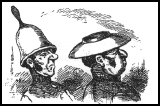
It is, on its own, so elegant that to write about it feels not quite right. I am reminded of Diderot's statement about coming up with a perfect map of the world. He wrote, "It would have to be the world." How can we write about such seminal works as this one (and Understanding Media and Seeing Like a State) except to tell others to take it whole.
The best I can do is to give a few choice samples, as I did above; explain that this is one you want to mull over for weeks if not months, as I did. Pick it up, and join the author in investigating the world of simple things, and in the process find out how complex they are: desks or chairs or shoes or keyboards or helmets or glasses:
The pince-nez, kept in place by spring pressure alone, was the first eyewear to become a fad among both men and women. Many ophthalmologists and opticians considered it difficult to fit, and the glasses fell off repeatedly. Yet ... contemporaries thought the design avoided the "elderly appearance" of spectacles with temples.
The Autobiography of Sokei-an,
America's First Zen Master
Michael Hotz, Editor
(Four Walls Eight Windows)
There is whimsy here, but no nonsense. Sokei-an tells of his nervous breakdowns, his fights with his master, ("You're a failure!"), losing everything to be a Zen monk (wife and child and work), his touches of madness, having to deal with Americans, and --- amidst all this self-revelation --- we get his wonderfully crabby asides.
For the first twenty years, he tells us, he "greatly benefited from Buddhism." In the second twenty years, he says, "I have been ungaining everything I have learned."
In conclusion, I should say I have gained nothing ... I went through such terrific agony studying this Zen. I lost everything I had, and I gained nothing. I am satisfied.
These last three words, piled atop everything that goes before, the tail on the donkey. It all goes to make Sokei-an a boot; what he gets down on the page encompasses the very essence of crazy wisdom, the wisdom that sets him above many of the other foreign-born masters, giving us the secure knowledge ... of the absurdity of it all.
We come to expect, demand, and enjoy the asides in Holding the Lotus to the Rock. Here's a man who obviously loves his religion but, too, loves all the people (and all the foolishness around him).
Collected &
New Poems,
1967 - 2001
Norman Dubie
(Copper Canyon)
This Dubie is strange and wonderful and deserves your consideration. This particular volume lay around on my desk for a few months while I picked it up, pawed through it, put it down, picked it up again, wondered at the startling images, wanting to write it up, but hesitating, knowing, as all of us must know sometime, that we would be hard-pressed to get something like this down, to make it comprehensible to ourselves, to others. Dubie's images can be so fresh as to force one to go through it again, just to see how he pulls it off; and once savored, reminding one of the best of haiku:
The birches stand in their beggar's row Each poor tree Has had its wrists nearly Torn from the clear sleeves of bone. These icy trees Are hanging by their thumbs Under a sun That will begin to heal them soon...
To me, the most awful and successful of his writings are those that touch on the holocaust. It is rare, so rare, that a poet can somehow blend the sacred and profane so exquisitely balanced, the unspeakable tension between gloriousness, and brutality --- setting a tautness to the words that reminds one of a combination of Hemingway, Schwarz-Bart, Laurie Lee, Alain Resnais --- or perhaps, strangely enough, the mature Byron:
As a girl, in Poland, she watched her husband
Be dragged through the shade of five pines
To the execution wall. A year earlier
She had watched him bathe
In the bronze tub the landlord had put
Out in the field as a trough for horses.
Rockwell Kent
(Wesleyan)
There are a few surprises here. One is that Kent does not deny a mid-winter depression that lasted for the entire nine weeks of total darkness in the village,
Yet I welcomed the pitch-darkness of the most clouded nights as offering release from the continual restraint that I was under to conceal my trouble. Then, only in the darkness, could I be alone...
Another was that he fell into the habit of the Greenlanders of sleeping with anyone who happened to be about when it was bedtime. Because in the cold dark blanketless world of his village, at times it was only bodily warmth could keep one from freezing to death. He ended up sleeping with various traveling companions, male and female, and Salamina and several other housekeepers --- but he is shy about defining what it meant to be "sleeping" with someone. We wonder, indeed, why he names his entire book after his erstwhile housekeeper.
Another surprise is that his drawings, many presented here along with lovely chapter headings, are really not very good. He just can't get the lower parts to work. The various characters of the village often seem to be floating just off the ground, feet and body and legs at all the wrong angles, unanchored, going off to join with the auroras.
Finally --- and this is no surprise, since he is a painter --- his take on the scenes around him are not only painterly, they are described in painterly fashion (note "madder" below --- which my dictionary tells me is "a moderate to strong red.") He too, it turns out, is a musician, and this appears from time to time:
Picture a Temperate sea and mountain view; Clear day, late afternoon in fall; blue sea, and golden-purple shadowed land, and pale-blond lower sky; purple to gold, pale light to deep-toned madder. Now, into that, like a shaft of sunlight into a lamplit room, like violins and flutes above the bass, high-pitched, ethereally pure, so clean, sharp, dazzling that it almost hurts, see ice appear. The pale-gold sky is somber now; sea, sky, and land are of one low tonality against which sings that poignant whiteness.
I usually don't think of reading history as in any way comparable to, say, a good Alan Furst novel --- but this David Kennedy is a diligent scholar and a jim-dandy writer, and he has come up with a treatise that I was reluctant to lay aside for something as relatively unimportant as sleeping or eating.
For example, his word-pictures. Roosevelt's earliest campaigns were managed by an erstwhile newspaper reporter who --- using the Roosevelt name --- carried on
a vast correspondence, much of it cranked out over his forged signature from what amounted to a letter-writing factory run by his shrewd and faithful operative, a crater-eyed, gnarled, wheezing homunculus named Louis McHenry Howe.
Or, this, on New York State politics:
Roosevelt's political nemesis in state politics had been Tammany Hall, the ultimate, ball-jointed, air-cushioned, precision-tooled, self-oiling, thousand-kilowatt urban political machine.
Where Stuff
Comes From
How Toasters, Toilets,
Cars, Computers, and
Many Other Things
Come to Be
As They Are
Harvey Molotch
(Routledge)

Strange facts and strange unions of logic have always captivated us, and, presumably, will always do so. What we look for are unusual parallelisms --- where, for instance, the making of toasters has something to do with culture (they scarcely exist in Italy). Or, the putting of an inordinate number of young Afro-American men in prison affects fashion --- droopy bottoms and loose-fitting jeans are a result of the prohibition against belts. Now loose-fitting pants and shirts are a world-wide fashion statement.
These kinds of charming facts tend to be non-political. Marshall McLuhan was neither in favor of nor against television programming: he was more concerned about the way it was perceived --- for instance, that very young children sat close to the televisions of the day because the definition was so poor --- a 525-line screen --- that they sought to compensate for the low definition (in the same way that a child will often look down at the receiver of a telephone to visually compensate for the poor fidelity of a 5kc cut-off).
In the same way that Stewart Brand's Whole Earth Catalogue was apolitical (he made use of extensive government and military information as much as "counter-culture" writers, so Molotch defines himself as a "political atheist." He is only concerned with what he calls "lash-ups" --- where things come together.
That, for instance, the width of railroad tracks in the United States goes back to the width of Roman roads --- being the width of the posteriors of two horses, bound side-by-side to pull chariots during the time of the Empire.
It is this apolitical fact-yoking that gives an almost aesthetic pleasure. We found similar joy in Our Own Devices by Edward Tenner. Then there was James C. Scott's Seeing Like a State. Like the present volume, the latter is an astonishing, nicely written, wise, and (sometimes) funny disquisition on how things work: and, in addition, in Scott's book, how governments invariably screw up. Like Marshall McLuhan turning our view of media on its head, Where Stuff Comes From is a book that congregates the various explosions (of art, of technology, of "things") into a simple if not sensible whole.
What is it, do you think, that makes a good historian good (and a bad one bad)? Is it mere style: that one should write with verve, precision, and a smattering of humor? Or flow --- where unlike history itself, there should be definition (and limitation), a narrative that reads like a good novel?
Or is it more simple --- that the author should show himself or herself to be a jam-packed tower of information about his/her subject; a knowledge necessarily married to restraint (the writer should know the limits, should know when to shut up.)
Or is it that the writing should be of a piece --- must share the bulk of knowledge, the fire of inspiration, the daring of art?
Art? Is that what would set the likes of Francis Parkman, Brian Lapping, Barbara Tuchman, Eric Hobsbawm, Margaret Miller, Gerald DeGroot and even Winston Churchill apart from the mass of these history post-docs scribbling out their tired masses of words?
There is the ham-fisted Tom Brokaw, the over-opinionated A. J. P. Taylor, Conrad Black --- Lord Conrad Black, mind you --- all 1800 pages of him, along with the dullest word-watcher of them all, Arthur Schlessinger.
This was all going through my head as I made my way through Kennedy's second part of the series entitled Freedom from Fear: The American People and World War II. I was struck by his style --- for instance, as we, doughty old me and sharpshooter Kennedy, met and conquered the Solomon Islands, during the darkest days of the war, when the American military appeared in 1942, deciding to use them as a jumping off point for the earliest offensives against Tokyo:
The Japanese had already dislodged, captured or scattered into the moldy jungle the five hundred or so Europeans who ran the Solomon Islands' few shabby coconut plantations, hacked laboriously by native workers out of the vine-choked tropical rain forest. The Solomons were annually drenched by some of the planet's heaviest rainfalls. The fetid atmosphere buzzed with insects. The damp jungle floor slithered with rodents and reptiles. Above it soared giant hardwood trees with forty-foot-diameter trunks arising from splayed, fin-like bases 150 feet into the virtually opaque canopy. The nearly one hundred thousand Melanesians who had inhabited the islands since time immemorial had already had a taste of Western ways when in 1893 they came under the rule of the British Solomon Islands Protectorate with its rustic and sleepy colonial capital at Tulagi.
Now their verdant islands and blue lagoons were about to be convulsed by a spectacle so violently improbable, so murderously fantastic, that their horror and wonder could only be guessed at by imagining the citizens of Los Angeles awakening one morning to find flotillas of Eskimos and Mayans, somehow armed with weapons destructive beyond reckoning, descending, massively upon the coast of California, there to wage colossal battle.
And that's it. The facts? Right there. The ambiance? Not to be missed. The writing? Damn near poetical.
Angeles Mastretta
Amy Schildhouse Greenberg,
Translator
(Riverhead)
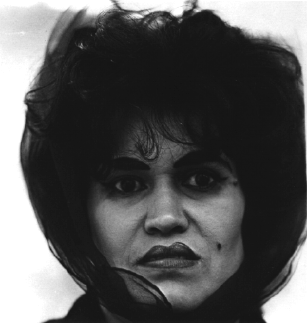
Nothing can be more loathsome than some knucklehead reviewer writing the summary of a good novel. Usually the reviewer's own bad prose poisons the magic of the writer.
I won't do that here. Why? Women with Big Eyes is written with a style that is something that's out of this world. (If you happen to read Spanish, you don't need this fine translation, you get Ms. Mastretta's pure writing itself, starting on page 193.)
Here we have thirty-seven stories telling of thirty-nine women of Puebla --- their births and deaths and loves and tragedies and strangenesses. "Aunt Jose Rivadeneira had a daughter with eyes like two moons, as big as wishes" --- Tía Jose Rivadeneira tuvo una hija con los ojos grandes come dos lunas, como un deseo. Aunt Marcela "had in her eyes the light of those who search for the best side of life, the light of those who, unfortunately, do not accept the happiness that only fools can enjoy, but who are ready to even pretend so, just to hold on to the very tip of joy."
For that reason, Aunt Marcela always sang softly when getting the children to sleep and when waking them, when threading a needle, when beseeching the heaven that the breakfast eggs not stick to the frying pan, when asking her husband to look at her the way he did at the beginning, and even when accompanying the soliloquy of her long walks.
Ed Zern
(The Lyons Press)
Zern seems conversant with every place in America and the rest of the Western world where one can drop dry flies in a cold river, or fish from a boat, or take a shotgun to zebras, deer, woodcocks, or spend mornings shivering in a blind waiting for ducks or turkeys to happen by.
I guess some of his charm is his well-disguised intellectualism. In one of his pieces for Field & Stream --- Field & Stream, mind you --- he slips in references to Wagner (comparing his operas to big game hunting), Bach Sonatas (trout fishing with a dry fly). Proust and Joyce turn up here or there, as does D. H. Lawrence.
The main reason that Ed Zern is not listed up there with S. J. Perelman, Robert Benchley, E. B. White and Peter de Vries is because he wrote for the sporting set at Field & Stream instead of the smart set at The New Yorker. Yet he bests many of the more famous humorists --- with the possible exception of Perelman. Here, for instance, is his complete review of a certain lurid book you may have run across:
Although written many years ago, Lady Chatterley's Lover has just been reissued by Grove Press, and this fictional account of the day-to-day life of an English gamekeeper is still of considerable interest to outdoorminded readers, as it contains many passages on pheasant raising, the apprehending of poachers, ways of controlling vermin, and other chores and duties of the professional gamekeeper. Unfortunately one is obliged to wade through many pages of extraneous material in order to discover and savor these sidelights on the management of a Midland shooting estate, and in this reviewer's opinion this book can not take the place of J. R. Miller's Practical Gamekeeping.
Joanna Scott
(Picador)

Is this the real Egon Schiele? Maybe. Maybe it makes no difference, for Ms. Scott has created an awesome artist, a demented artist --- brought him to life for us. She may be wrong: he might have been, in reality (whatever that may be) a sweetheart, a shy wall-flower, a churchgoer. But she has captured a wild and awful and brilliant man, in a brilliant way, and we don't want to disbelieve her, or even care, for we would be losing too much.
There have been gripping books about artists before. We think of Bertram Wolfe's The Fabulous Life of Diego Rivera, Jean Renoir's Renoir, My Father, and Rembrandt by Gladys Schmitt. But there has been only one to match Arrogance, for getting us enmeshed in the soul of the artist --- the tricky, devilish, pure, dark soul of the artist: Joyce Cary's The Horse's Mouth.
Gulley Jimsen is as devious and thieving and as lively as Egon, even though a bit more comic, certainly more endearing. Scott's work, like Cary's, involves portraits of an artist as he lives and schemes himself into the world. One is supposedly totally fictional. The other is supposedly all too real. It is probably impossible for a reader to distinguish between the two of them.



